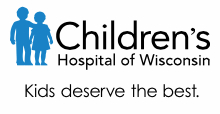Parenting After Infant Congenital Heart Defect Diagnosis
| Status: | Active, not recruiting |
|---|---|
| Conditions: | Peripheral Vascular Disease, Cardiology |
| Therapuetic Areas: | Cardiology / Vascular Diseases |
| Healthy: | No |
| Age Range: | Any |
| Updated: | 4/21/2016 |
| Start Date: | January 2009 |
| End Date: | December 2019 |
The purpose of this research study is to learn about parents' experiences following
diagnosis of a fetal/neonatal Congenital Heart Defect (CHD). Nurses, physicians, and other
health-care clinicians will benefit from an improved understanding of what the diagnosis
means to parents and what they expect concerning the infant, being a parent, and caregiving
tasks and responsibilities. The investigators expect that the knowledge gained will increase
clinicians' ability to respond to parents' needs.
diagnosis of a fetal/neonatal Congenital Heart Defect (CHD). Nurses, physicians, and other
health-care clinicians will benefit from an improved understanding of what the diagnosis
means to parents and what they expect concerning the infant, being a parent, and caregiving
tasks and responsibilities. The investigators expect that the knowledge gained will increase
clinicians' ability to respond to parents' needs.
Parental mental health status is linked to the development and quality of caregiving, as
well as physiological and psychosocial outcomes for the infant/child with a heart defect.
This is an evolving population of parents with most challenged prenatally with a fetal
diagnosis and later as caregivers for medically complex infants. Parents with pre- and
postnatally diagnosed infants are at risk for sub-optimal mental health. Parents'
experiences and needs differ by timing of diagnosis.
Several gaps in the literature exist. First, advances in technology raise questions about
how becoming a caregiver is experienced considering the timing of the diagnosis. Second,
little is known about how the timing of the diagnosis could influence parents' mental health
status and caregiving after diagnosis. Finally, more study is needed to identify the type,
timing and duration of intervention to support these parents as caregivers and optimize
their infants' health.
Data collected for this study included demographic and health information (from parents and
infant health records), measures of distress (symptoms of depression, anxiety and trauma),
and interviews. Semi-structured interviews were conducted with parents in person in the
hospital and home settings. Interviews with each couple in the prenatally diagnosed group
were conducted once during the third trimester of pregnancy and once within 12 weeks after
birth. Interviews with each couple or mother in the postnatally diagnosed group were
conducted once within 12 weeks after birth. Interviews lasted 1-3 hours, were audio-recorded
and transcribed verbatim for analysis. Field notes were also written and audio recorded for
use in analysis.
Directed content analysis has been used to describe parents' experiences and caregiving
motivations in relation to parental distress and severity of infant illness. Analysis of
data is ongoing. Additional analyses are expected to further improve knowledge on the
differing needs of parents of pre- and postnatally diagnosed infants, as well as parents'
experiences and caregiving motivations in the context of discharge from tertiary care.
well as physiological and psychosocial outcomes for the infant/child with a heart defect.
This is an evolving population of parents with most challenged prenatally with a fetal
diagnosis and later as caregivers for medically complex infants. Parents with pre- and
postnatally diagnosed infants are at risk for sub-optimal mental health. Parents'
experiences and needs differ by timing of diagnosis.
Several gaps in the literature exist. First, advances in technology raise questions about
how becoming a caregiver is experienced considering the timing of the diagnosis. Second,
little is known about how the timing of the diagnosis could influence parents' mental health
status and caregiving after diagnosis. Finally, more study is needed to identify the type,
timing and duration of intervention to support these parents as caregivers and optimize
their infants' health.
Data collected for this study included demographic and health information (from parents and
infant health records), measures of distress (symptoms of depression, anxiety and trauma),
and interviews. Semi-structured interviews were conducted with parents in person in the
hospital and home settings. Interviews with each couple in the prenatally diagnosed group
were conducted once during the third trimester of pregnancy and once within 12 weeks after
birth. Interviews with each couple or mother in the postnatally diagnosed group were
conducted once within 12 weeks after birth. Interviews lasted 1-3 hours, were audio-recorded
and transcribed verbatim for analysis. Field notes were also written and audio recorded for
use in analysis.
Directed content analysis has been used to describe parents' experiences and caregiving
motivations in relation to parental distress and severity of infant illness. Analysis of
data is ongoing. Additional analyses are expected to further improve knowledge on the
differing needs of parents of pre- and postnatally diagnosed infants, as well as parents'
experiences and caregiving motivations in the context of discharge from tertiary care.
Inclusion Criteria for Parents:
- at least 18 years old
- English speaking and reading
- not known to have a mental illness or cognitive deficit
Inclusion Criteria for Infant:
- prenatal or postnatal diagnosis of a complex CHD that requires surgical repair or
palliation early in the infant's life (i.e., tetralogy of Fallot, atrial-ventricular
canal, ventricular septal defect, pulmonary stenosis, tricuspid atresia, hypoplastic
right or left heart, or other complex condition). Infants will not be excluded if
they also have congenital syndromes or extra-cardiac defects.
Exclusion Criteria:
- no CHD diagnosis
We found this trial at
2
sites
9000 W Wisconsin Ave #270
Milwaukee, Wisconsin 53226
Milwaukee, Wisconsin 53226
(414) 266-2000

Children's Hospital of Wisconsin Nothing matters more than our children. At Children's Hospital of Wisconsin,...
Click here to add this to my saved trials
University of Wisconsin-Madison In achievement and prestige, the University of Wisconsin-Madison has long been recognized...
Click here to add this to my saved trials
